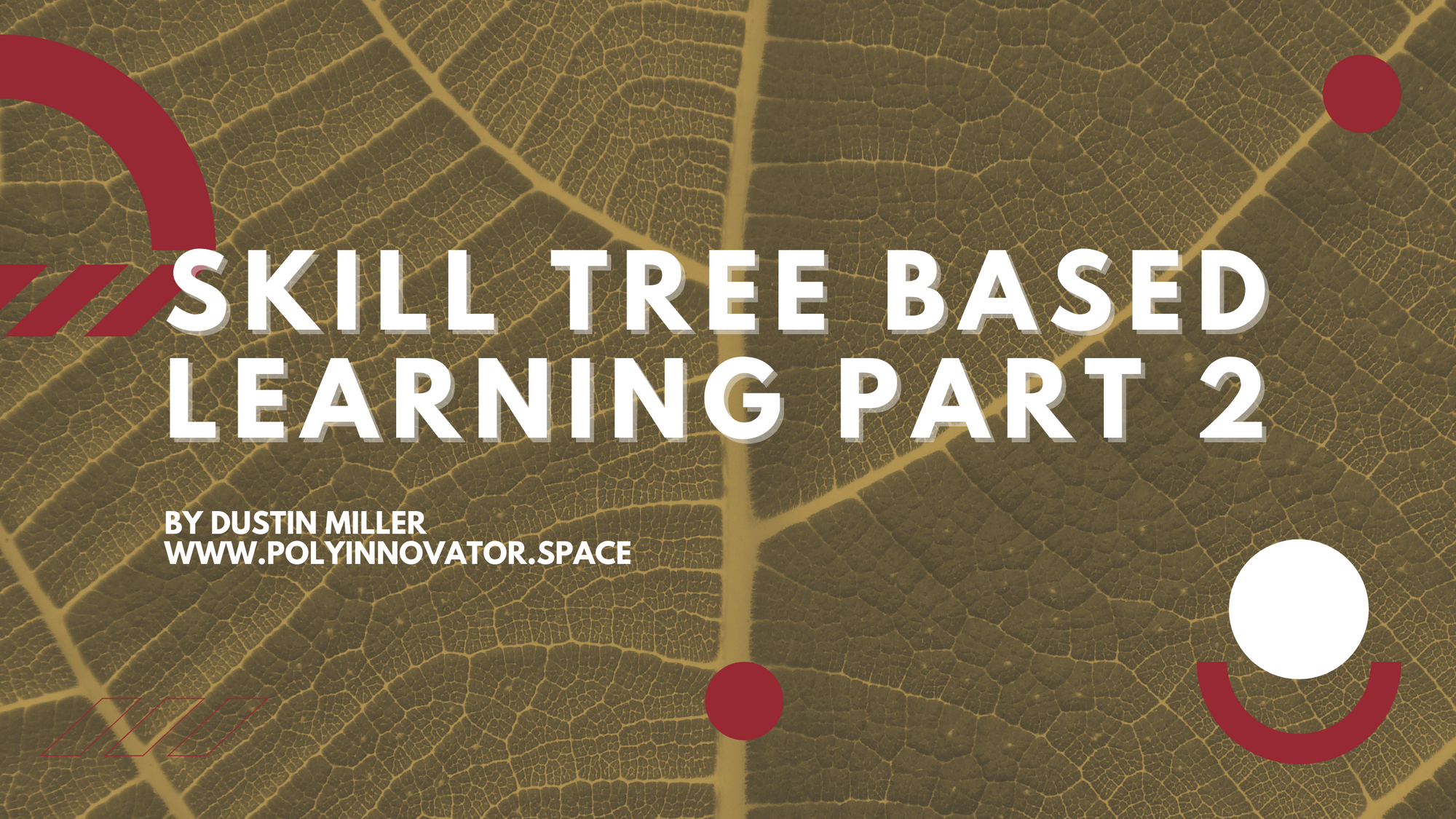Taking a gaming concept and applying it to learning.
You want the quickest way to learn a skill most effectively, then look no further.
Even the greatest minds cannot understand a concept fully at first, in short breaking it down is key to understanding knowledge of any kind.
Skill Trees are a concept in gaming, where the user/gamer acts in accordance with a branching path of skills. Those skills in turn directly impact the gameplay, changing how the experience is portrayed.
If one were to take that concept into account when learning, branching paths, and breaking down big pieces; Then the retention/understanding of knowledge will be far superior.
PolyInnovator is the only place you will find out more on Skill Tree Based learning, so stay tuned with either the mailing list or just check back often to learn more!
If you want one of the best ways to learn something new, then keep reading on to find out more!
You will get the basic idea of how to use skill trees in your learning to maximize your skills.
First we need a topic, or rather skill set, that you want to learn about. Then we break it down into smaller chunks to digest the info quicker. At that point most people would just do one after the other, maybe skipping one if it was too hard. A skill tree allows us to simultaneously tackle multiple chunks, or rather interleave them back and forth. When one hits a dead end, or too advanced, then you switch to another to keep progressing.
It is almost like a game where you have different side quests, but they all lead up to the main goal or quest. Like a choose your own adventure game, but you choose what the actual topic/plot is so to speak.
Choose your own adventure
People like choices, why not have them when it comes to your education?
Tell me this: would you rather sit in a class hearing a lecture on a subject you’re not interested in, or would you go down a research rabbit hole on a topic you’re really passionate about?
My guess it would be the latter, and I’ve gone down countless of those rabbit holes myself. Even if you haven’t really ever done that before, or you’re like me and you have a lot, there is something I can help you with to improve.
I want to help you become that autodidactic researcher of your dreams.
A skill tree isn’t a new concept, but applying to education is and you are pioneering with me this new frontier of learning.
You want a way to learn something new that will constantly keep your attention, so that you don’t get bored or burned out. Correct? Keep reading.
Dynamic choices and paths
What are the logistics of creating your own pathways? How might they be useful, or even be worth the effort?
Every single person growing up has that one class where their experience learning was so bad that they wished they could escape.
Skill Trees work as a way to distract the brain from tedious learning (yes sometimes it is still necessary, but this limits that), and exemplifies the more interesting subject matters to you.
By breaking down the subject into different pathways that culminate the whole skill, then you create branching learning sprints for yourself.
After breaking them down you apply micro-goals, which help you complete them because it isn’t some big daunting task. On top of that you can switch between them when you get bored/distracted. Allowing for your interest to stay at relatively peak levels, which is great for getting into FLOW.
I actually do this all the time, often without even realizing nowadays, for my own endeavors as it is just more efficient at getting things done.
I encourage you to check out the previous post on this strategy!
Related Post: Skill Tree Based Learning Part 1
Life is a game
To win at life you need to play well…
That is kind of a weird, even “floaty” thought, and one might think I am going down the route of motivational speaker. Now I am not opposed to that, but I am being quite serious in this thought process.
This concept of treating life like a game is not new, but treating education in that light is rather new. You have an opportunity here to challenge yourself to a new level with a skill; However the challenge is to actually understand, and even better USE the skill.
You have the potential, so now find a way to maximize the opportunity. This is what I am trying to get across here: Skill Trees act like a diverging path. Giving you a game of learning, to play in life, and to truly master a skill by using the psychological aspects of gamification.
That is what I am giving you here, the idea of using Skill Trees as a “game” to play in life.
SO WHAT?:
You may find it hard or easy depending on your video game experience, but you will solely need the dedication to accomplish it. You can accomplish it by either creating a mind map of the skill (and accompanying knowledge areas of it), or a Richard Feynman-like break down of the skill.
Choose YOUR own dynamic learning game
Okay so learning “isn’t” a game, but why not? It is something we all do on a daily basis in some shape or form. Why not make it more fun by gamifying it??
Just writing this is making me excited to learn something new. I really hope you are sensing the ecstatic energy here! 😀
I’ll be honest I still need to do this more, and the more I do the more I can share with you. I took this Skill Tree approach with my Modular Degree, and I feel successful with it. Especially since I was able to do it so naturally as a gamer myself. I’ll keep trying to make it easier for you too!
All we need to do is take a concept worth learning, and apply a bit of video game magic to it: creating a skill tree.
Open a Google Doc or Notion Page Right now!
I strongly encourage you to reach out if you are curious about this, and if you have the audacious energy already then try it out! You don’t have to do any learning now just experiment.
Create a page in a doc or page, and list out the skills you like to learn. Then approach it like a game designer. How might you approach these learning areas in a progression? Step by step how can you learn this skill?
Coming soon I will be releasing templates for people to try out.
YOU MIGHT LIKE THIS:

![Official Website for Dustin Miller PolyInnovator [LLC]](https://polyinnovator.space/content/images/2025/03/polyinnovator-logo-2024.png)












